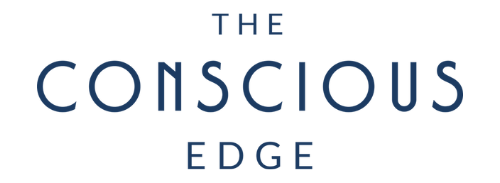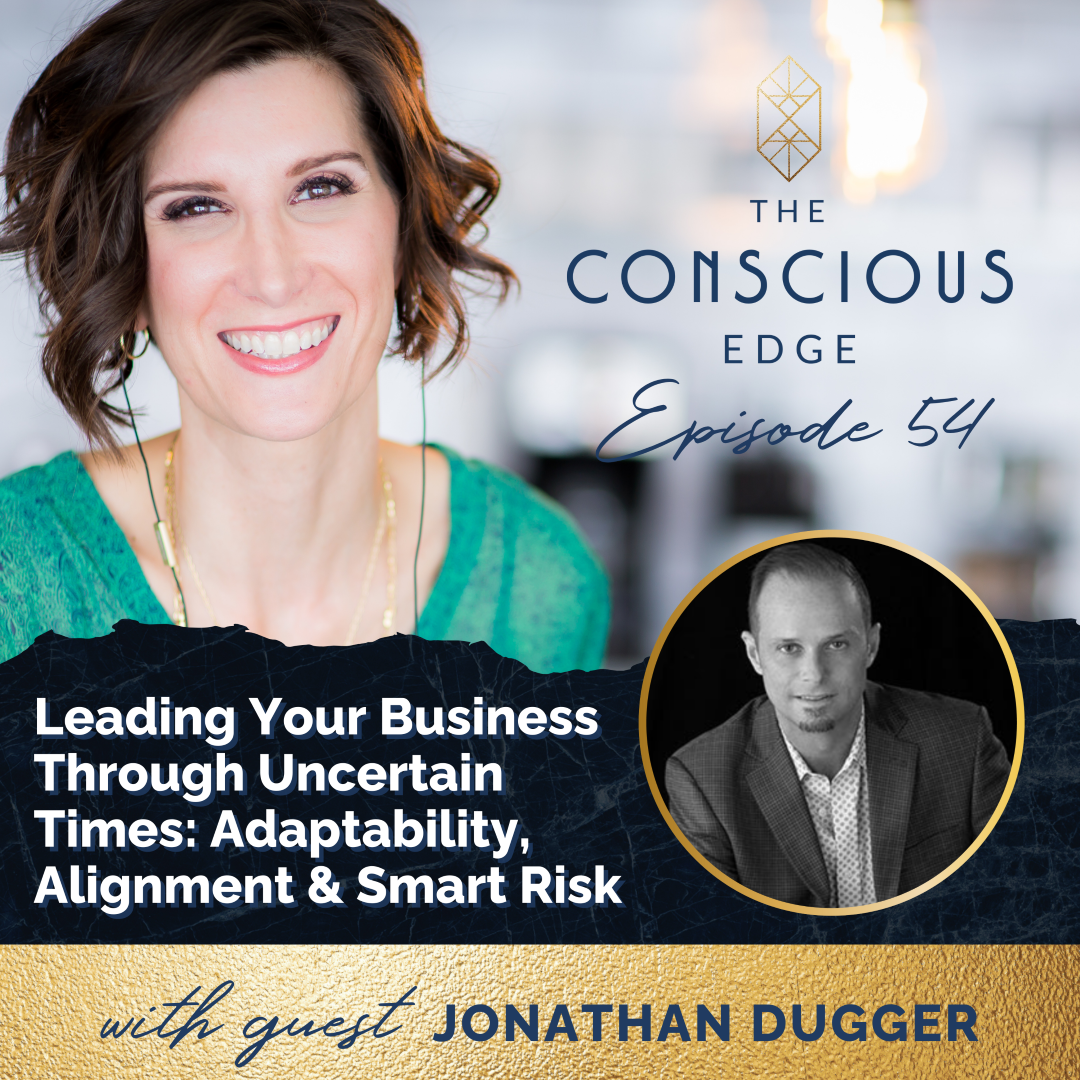Uncertainty. It’s the thing nobody wants but every entrepreneur will face. In this episode, Jonathan Dugger and I cracked open what really happens when the ground shifts beneath our feet—and how to rise, not retreat.
We talked about why freezing up (aka playing it safe) feels like the default, and how to flip the script so you can lead, grow, and invest with clarity—even when the future feels foggy. If the market feels shaky or life is throwing curveballs, take a breath. You were built for this. And there’s so much growth waiting on the other side.
📝 Top 3 Takeaways from the Episode:
- Adaptability is your unfair advantage: The ability to pivot, reimagine, and let go of outdated strategies? That’s how you stay ahead while others stall out.
- Being financially prepared = real power: When you’re ready, you can move when others are stuck. Money gives you options. Options create opportunity.
- Lead with alignment, not fear: When your choices match your values, you’ll not only feel more confident—you’ll attract the right deals, people, and momentum.
Seven Approaches To Manage Uncertainty
Research has demonstrated that focusing on uncertainty regarding the future of our business or job actually takes more of a psychological and physical toll than actually losing our job or business. Think about that one for a moment……
These are seven approaches that can help you navigate the anxiety of uncertainty:
Focus on what you can control: Despite your best efforts, things won’t always go as planned. The first step is to remember that plans don’t always go as expected and unknown events and disappointments can blindside you. By acknowledging and accepting that certain factors are always beyond your control, you free up energy and attention so you may focus on what you can control. Spend time and energy on things around you that you can manage, create and enhance to empower yourself to keep moving forward, flexibly and creatively.
Exercise Self-Care: The best resource that you have right now for making a contribution to the world is YOU. When that resource is depleted, your most valuable asset is damaged and diminished . In other words: When we underinvest in our bodies, minds, or spirits, we destroy our most essential tools for leading our best lives and assisting in the lives of others. We humans don’t do well when we defer maintenance on ourselves. We need to sustain the relationships that bring us connection and meaning. We must get enough sleep and rest when we are tired. We need to spend time having fun and playing, just for the joy of it.
Look for the opportunity in the difficulty: Yale neuroscientists found that uncertainty can actually be healthy for your brain if you can focus on what you learn more in those times. In a predictable setting, your brain isn’t nearly as active. It becomes involved in more automatic processes. But, when situations change, it works harder. Entering an unfamiliar situation enhances the tendency for your brain to absorb additional information.
Keep a curious mind: Curiosity and anxiety seldom co-exist. When you make your mind up out of fear before each new experience, you become resistant to acquiring and processing new information. Opening your mind with curiosity empties a made-up mind of expectations, allowing you to receive teachable moments in new situations. Learning to be okay with “maybe,” also can help you become more comfortable with uncertainty and open you to possibility. Don’t believe everything you think. Perhaps the most essential stress-reduction tactic that anyone has ever taught me is not to believe everything I think. In uncertain times, it’s particularly important not to believe thoughts that argue for the worst-case scenario. It can be helpful for us to consider worst-case scenarios so that we can weigh risks and actively prevent disaster. But when we believe these stressful thoughts as fact and inevitable as opposed to simply one possibility, we tend to react emotionally as though the worst case is already happening in real life, rather than just in our heads. We grieve for things that we haven’t actually lost, and react to events that are not actually happening. This makes us feel threatened, afraid, and unsafe. Mindfully take a step back and analyze your thoughts and feelings without judgement. Simply be curious without placing conditions.
Cultivate honest optimism: By honest optimism, I mean taking a perspective that considers positive outcomes as part of the mix. That doesn’t mean that we avoid considering less to perfect situations but that we take a healthy balance of realistic, positive possibilities. Research has shown that realistic optimists climb the success ladder faster and farther than the chronic pessimist. When you ovelry highlight the negative aspects of your career, it can dash hope and excitement and shrink the enthusiasm and motivation that keeps you engaged and productive. If you keep your focus on the positive realities and possibilities of career challenges, you are more likely to overcome obstacles creatively and flexibly. Our negativity bias can also set us up for failure. Expectations can become a self-fulfilling prophecy. When we expect the worst, we often feel too afraid or close-minded to seize opportunities or respond to challenges with fresh perspective and grit. Instead of buying into every stressful thought, we can actively imagine the best possible scenario. We can find exciting possibilities and opportunities to replace ruminations. This can help counter a tendency to overestimate risks and negative consequences
Turn unknowns into adventures instead of problems: On default, our brains may look at unknowns and uncertainty as a threat or problem that needs solving. We have a choice to view unknowns as either problems that create stress or adventures that create novel situations and opportunity. When you flip that perspective, it welcomes possibilities and solutions instead of eclipsing them with problems. Studies show that this perspective shift makes you feel empowered and less anxious instead of victimized by uncertainty.
Take chances and work to find the meaning in the chaos: The same assumptions that keep we think keep us safe may prevent us from growing and reaching business and personal successes. Avoidance behavior because of uncertainty may fool you into thinking you’re safe and sound, but the cocoon you construct may become a type of psychological prison. Experts insist that the cost of inaction is far more painful and offers no lessons to grow or reach your business dreams. So build your risk-taking muscles early and often by making small new choices each day. Find one place in your career where you’ve been hiding and avoiding and ask is a step in addressing that and then take action. Social psychologists define meaning, as it applies to our lives, as “an intellectual and emotional assessment of the degree to which we feel our lives have purpose, value, and impact.” We humans are best motivated by our significance to other people. We’ll work harder and longer and better—and feel happier about the work we are doing—when we know that someone else is benefiting from our efforts. For example, teens who provide tangible, emotional, or informational support to people in crises tend to feel more strongly connected to their community. Research also shows that we feel good when we stop thinking about ourselves so much and support others. When we see something that needs improvement, our next step is to recognize what we personally can do to be a part of the solution. What skills and talents (or even just interests) can we bring to the issue? What really matters to us, and how can we be of service? Meaning and purpose are wellsprings of hope and motivation. When the world feels scary or uncertain, knowing what meaning we have for ourselves and others and feeling a sense of purpose can ground us in amazing ways. So, don’t just wait for this chaos and uncertainty to be over. What have you always wanted to do? What outcome are you hoping for? How can you make a real life in this? Live THAT life.
🎧Podcast episodes related to this one that might interest you:
Episode 51: Breaking Through the B.S. Blocks: From Burnout to Bare Minimum Magic
Episode 45: What White Knuckling It On An Airplane has to do with Taking Risks in Your Business

